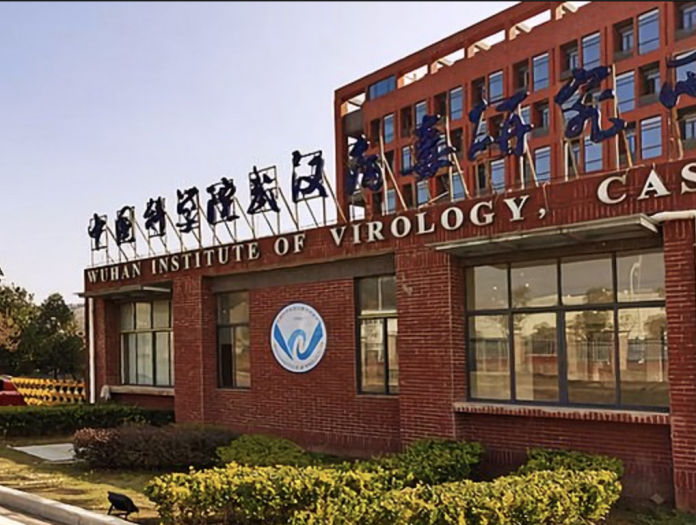Well over a year after first reports of a mysterious coronavirus first surfaced in Wuhan, China, little progress has been made in identifying the source of a disease that has wreaked havoc worldwide.
A team of investigators from the UN-affiliated World Health Organization (WHO) arrived in China in mid-January to begin their much-delayed probe into what caused the initial outbreak. But by late February the WHO team abruptly scrapped plans to issue an interim report, putting off the release of their findings for several more weeks.
Frustrated by the WHO team’s foot-dragging and skeptical of its objectivity, a group of international virus experts on March 5 called for a “new and unrestricted” forensic inquiry into the emergence of the coronavirus. The group of 26 virologists, epidemiologists, microbiologists, zoologists, and other experts said it was “all but impossible” for the WHO team to conduct a full investigation, given the political restraints imposed on its members by the Chinese government.
“Finding the origins of SARS CoV-2 is critically important to both better address the current pandemic and reducing the risks of future ones,” the experts wrote in an open letter online. “Unfortunately, well over a year after the initial outbreak the origins of the pandemic remain unknown,” they added.
Who is Behind the WHO investigators?
The letter questioned the objectivity of the WHO’s investigation. “In particular, we wish to raise public awareness of the fact that half of the joint team convened under that process [was] made up of Chinese citizens whose scientific independence may be limited; that international members of the joint team had to rely on information the Chinese authorities choose to share with them; and that any joint team report [had to] be approved by both the Chinese and international members of the joint team,” the letter stated.
“Although the [WHO] investigation was a significant opportunity for the international community to gain some limited and highly curated information, it has unfortunately proven opaque and restrictive, greatly compromising the scientific validity of the investigation,’ the letter continued.
Signing the letter were scientists from the U.S., Britain, Germany, France, Australia, New Zealand, India, Belgium, Spain, and other countries.
The letter takes issue with WHO team leader Peter Ben Embarek’s recent statement that it was “extremely unlikely” that the virus, either accidentally or intentionally, escaped the Wuhan Institute of Virology (WIV). If Ben Embarek’s statement is accurate, it would lend credence to a competing theory, which purports the virus passed from a bat to an as yet unidentified intermediary animal and then to humans. Under this theory, the origin of the disease was natural.
“Based on our analysis, and as confirmed by the global study convened by the World Health Organization (WHO) and Chinese authorities, there is as yet no evidence demonstrating a fully natural origin of this virus,’ the letter states.
The letter points out that one of the WHO investigators was already on record as dismissing the Wuhan lab theory. That appears to be a reference to Peter Daszak, president of the New York-based EcoHealth Alliance, which has conducted extensive virus research at the WIV and served as a passthrough for grants going from the National Institutes of Health (NIH), and possibly the Pentagon, to the Wuhan lab. Daszak’s statements rejecting the lab leak theory “cast doubt on his scientific objectivity,” the scientists wrote.
U.S. Tax Dollars to Wuhan Lab
Meanwhile, 28 Republican members of Congress have written a letter to NIH Acting Inspector General Christie Grimm demanding a “prompt and thorough” investigation into the NIH’s relationship with the WIV.
“The NIH, unfortunately, has played a major role in supporting WIV and this treacherous research and the promotion of spurious claims dismissing the NIH-funded lab’s potential role in the COVID-19 pandemic,” the GOP lawmakers wrote.
“In 2017, NIH Director Francis Collins personally supported and celebrated the resumption of dangerous, taxpayer-funded ‘gain-of-function’ research designed to make viruses more transmissible and fatal,” the letter goes on. “Subsequently, Dr. Collins’ NIH allowed U.S. taxpayer dollars to be secretly funneled to WIV’s reckless coronavirus experiments through grants awarded to the U.S.-based EcoHealth Alliance, Inc. The Pentagon also apparently funded WIV via a grant to EcoHealth.”
The lawmakers’ letter further notes that the NIH’s Dr. Collins published a blog in March 2020 denying claims that the coronavirus was engineered in a Wuhan lab. “EcoHealth’s President [Peter Daszak] has also sided with the CCP and openly criticized the U.S. for investigating the theory that SARS CoV-2 originated in the WIV lab to which he directed NIH funds and has closely collaborated with for decades,” the lawmakers wrote.
“The degree to which the Chinese government is determined to prevent the world from knowing the truth and the willing complicity of some in the West, such as a few members of the sham WHO ‘investigation team,’ in perpetuating such CCP obfuscation is the outrage of our century,” Miles Yu, a senior fellow at the Washington, D.C.-based Hudson Institute, tells Health Care News. “The world’s future health depends on an honest and forensic inquiry into the true origin of the virus scourge that started in Wuhan, China.”
The current administration needs to make this a priority says Andrew Weber, a senior fellow at the Washington, D.C.-based Council on Strategic Risks.
“Given the lack of clarity regarding the origin of the COVID-19 pandemic, it would be prudent for the Biden administration to reimpose a moratorium on funding gain-of-function research,” Weber said.
Bonner R. Cohen, Ph.D., (bcohen@nationalcenter.org) is a senior fellow at the National Center for Public Policy Research.
Image Courtesy: Wikicommons
https://commons.wikimedia.org/wiki/File:Wuhan_Institute_of_Virology_main_entrance.jpg





















